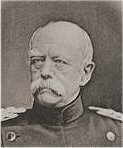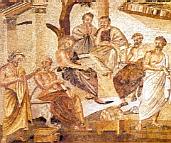
The noted blogger Fjordman is filing this report via Gates of Vienna.
For a complete Fjordman blogography, see The Fjordman Files. There is also a multi-index listing here.

My post about the impact of Christianity on Western culture generated some interesting comments. Several readers stated that Christianity is flexible, unlike Islam, and that the United States, perhaps still the most devoutly Christian of Western nations, also has the most dynamic military forces. And it was the Americans who dropped nuclear bombs on Hiroshima and Nagasaki, which hardly indicates that Christians have to be soft.
The blogger Vanishing American says she can’t count the number of Internet discussions she has seen blaming the “Camp of the Saints” invasion of the West on the feminizing impact of Christianity. She should note that The Camp of the Saints by Jean Raspail does indeed describe how Christian leaders and bishops are at the forefront of surrendering Europe in the name of compassion, and this really is happening. Moreover, she says that “I cannot see how Christianity has been capable of instilling guilt in Europeans long after they have stopped believing in Christianity.”
This is an inaccurate view of the situation. Although some of the destructive ideas I mentioned earlier are not always directly related to Christianity, they have adopted certain aspects of Christianity or at least ideas derived from Christian cosmology. However, they have upset the balance, and the resulting secularized religions have become caricatures of the original, sometimes highly dangerous ones. These post-Christian political religions believe in human perfectibility. That sounds like an attractive proposition, but its track record shows that this ideal has caused a lot of pain in real life.
 Some observers are aware of the fact that notions such as human rights are ultimately based in Christianity. I don’t always agree with the German philosopher Jürgen Habermas, who does have some quirky ideas, but he is right when he says that “Christianity, and nothing else, is the ultimate foundation of liberty, conscience, human rights, and democracy, the benchmarks of Western civilization. To this day, we have no other options [than Christianity]. We continue to nourish ourselves from this source. Everything else is postmodern chatter.”
Some observers are aware of the fact that notions such as human rights are ultimately based in Christianity. I don’t always agree with the German philosopher Jürgen Habermas, who does have some quirky ideas, but he is right when he says that “Christianity, and nothing else, is the ultimate foundation of liberty, conscience, human rights, and democracy, the benchmarks of Western civilization. To this day, we have no other options [than Christianity]. We continue to nourish ourselves from this source. Everything else is postmodern chatter.”
If we assume that Christian anti-Semitism is partly a reflection of a Christian Oedipus complex vis-à-vis its parent religion, Judaism, which is a plausible hypothesis, this opens up new perspectives on the hatred directed against Christianity by Multicultural, post-Christian Westerners. Since their creeds are secularized versions of Christian ideas, Christianity without Christ, some of them hate their parent religion, this outmoded and abrogated creed that still dares to exist.
 According to Vanishing American, “Truly, liberalism in general, even the extreme secular brand of liberalism, is a sort of counterfeit Christianity. This has been pointed out many times. Karl Marx, the son of a Christian convert, was a nonbeliever, but whether consciously or not, the system he fathered was a parody of Christianity. Instead of looking to a kingdom not of this world, Marxism and its offshoots proposed to create a heaven on earth.” She also quotes scholar James Kurth, who has called the deformation of Christianity behind Multiculturalism “Protestantism without God.”
According to Vanishing American, “Truly, liberalism in general, even the extreme secular brand of liberalism, is a sort of counterfeit Christianity. This has been pointed out many times. Karl Marx, the son of a Christian convert, was a nonbeliever, but whether consciously or not, the system he fathered was a parody of Christianity. Instead of looking to a kingdom not of this world, Marxism and its offshoots proposed to create a heaven on earth.” She also quotes scholar James Kurth, who has called the deformation of Christianity behind Multiculturalism “Protestantism without God.”
I’ve seen this claim before, that Multiculturalism is tied to Protestant culture. There could be some truth in this, but the Catholic Church is also infected by this problem, and it has other challenges in that it is a bureaucratic institution that is first and foremost looking after its own interests. Since it is demographically speaking increasingly based in developing countries, it more and more resembles a Christian version of the United Nations. Although I would welcome it, I therefore question the Church’s ability to defend the West.
I understand what blogger Conservative Swede means when he talks about European rather than Western civilization. When speaking about the West, we tend to include Protestants and Catholics, but not eastern, Orthodox Christians. But since the Roman Catholic Church is becoming one large religious NGO, it is increasingly difficult to say that it represents the West. As a Western European, I have more in common with a Serb or Bulgarian Orthodox than I have with a Catholic from Bolivia or a Protestant from Botswana.
 As I’ve demonstrated elsewhere, cultural relativism in the West can be traced back at least to the Enlightenment, perhaps to the Age of Exploration in the 16th century. However, there are even those who would claim to that its seeds date back prior to the Reformation. Humanists of the fifteenth century championed cultural criticism and presented their audience with a choice between a powerful past in ancient Italy and a corrupt and divided present. The most extreme strands of humanist thought led in the direction of repudiating Christianity altogether, and were personified by Machiavelli, who relied almost solely on Rome, very little on Jerusalem.
As I’ve demonstrated elsewhere, cultural relativism in the West can be traced back at least to the Enlightenment, perhaps to the Age of Exploration in the 16th century. However, there are even those who would claim to that its seeds date back prior to the Reformation. Humanists of the fifteenth century championed cultural criticism and presented their audience with a choice between a powerful past in ancient Italy and a corrupt and divided present. The most extreme strands of humanist thought led in the direction of repudiating Christianity altogether, and were personified by Machiavelli, who relied almost solely on Rome, very little on Jerusalem.
The Cambridge Companion to Renaissance Humanism by Jill Kraye explains it this way:
Their intimate knowledge of another culture, their habit of comparing that culture with their own age, their realism and their habit of arguing both sides of a question led in the end to an incipient form of cultural relativism. This is perhaps most obvious in the writings of the late humanist writer Michel de Montaigne, but signs of it can already be found in Petrarch. A major lesson of cultural relativism, of course, is that what one is in the habit of thinking of as a given of nature may in fact be a product of culture. And what belongs to culture, not nature, is within human power to change. Applied to the sphere of high culture, the will to reject tradition and embrace change can lead to a Renaissance; applied to the political sphere, it can lead to a Utopia.
The writer Paul Gottfried says that Multiculturalism “travels in the baggage of the American empire, as was evident during the unprovoked attack on Serbia.” I agree with that. As a fully mature developed ideology it was exported from the USA, which acted as the Multicultural Empire in the case of Serbia in 1999, an ideological war to uphold Multicultural orthodoxy.
Gottfried also warns against a secular or Multicultural theocracy. He continues: “Mass democracy is a term used to describe a government that rules in the name of the ‘people’ but is highly centralized and operates increasingly without an ethnic-cultural core. It is a bureaucratic empire that distributes political favors and provides a minimal level of physical protection but is no longer capable of or interested in practicing self-government. (…) What happened is that, contrary to what nineteenth-century critics of democracy believed, universal suffrage and urbanization did not lead to the outbreak of anarchy and violent expropriation. Rather the people voted to hand over power to ‘public administrators’ and more recently in the U.S. judges, who became the agents for practicing democracy on our behalf. Democracy was not equated with meaningful self-rule but with being socialized by administrators, who taught us ‘equality’ and later, pluralism and multiculturalism. That mass democratic regime has turned progressively therapeutic, with the advent of the cult of victims and the degeneration of Christianity into a purveyor of the politics of guilt.”
 James Kurth calls this the “Protestant deformation,” which has paved the way for Multiculturalism. According to Gottfried, “At the heart of the problem is the transformation of justified spiritual guilt into social guilt and the Protestant focus on the individual into a rejection of membership in a shared civilization that needs to be preserved.”
James Kurth calls this the “Protestant deformation,” which has paved the way for Multiculturalism. According to Gottfried, “At the heart of the problem is the transformation of justified spiritual guilt into social guilt and the Protestant focus on the individual into a rejection of membership in a shared civilization that needs to be preserved.”
– – – – – – – – – – But this confirms what I have said earlier. Our guilt complex does have its roots in Christianity, but it has been transformed into something else. Christianity believes in sin, but it also believes in forgiveness and redemption. According to the new post-Christian creed, we are told to feel vaguely guilty all the time for some unnamed sins. This makes us weak to resist attacks from outside because we will always feel that any act of aggression is justified. This guilt complex is destroying us, leaving us mentally disarmed in front of every enemy. Unlike in Christianity, where Christ sacrificed himself to wash away your sins, in this new Christianity without Christ, there is no possibility of redemption. And since it’s unbearable for us to live with this guilt for real or perceived past sins (again, a secularized version of the Christian concept of original sin), the only way we can free ourselves of this sin is to rid ourselves of our culture and everything that makes us “us.” We thus end up sacrificing ourselves. This secularized, post-Christian version of Christianity clearly isn’t sustainable. If left unchanged it will leave us powerless in front of Islam, and we will lose.
But this confirms what I have said earlier. Our guilt complex does have its roots in Christianity, but it has been transformed into something else. Christianity believes in sin, but it also believes in forgiveness and redemption. According to the new post-Christian creed, we are told to feel vaguely guilty all the time for some unnamed sins. This makes us weak to resist attacks from outside because we will always feel that any act of aggression is justified. This guilt complex is destroying us, leaving us mentally disarmed in front of every enemy. Unlike in Christianity, where Christ sacrificed himself to wash away your sins, in this new Christianity without Christ, there is no possibility of redemption. And since it’s unbearable for us to live with this guilt for real or perceived past sins (again, a secularized version of the Christian concept of original sin), the only way we can free ourselves of this sin is to rid ourselves of our culture and everything that makes us “us.” We thus end up sacrificing ourselves. This secularized, post-Christian version of Christianity clearly isn’t sustainable. If left unchanged it will leave us powerless in front of Islam, and we will lose.
 I’ve stated that post-Christian ideologies, arguably even Marxism, have expropriated ideas derived from Christian cosmology. However, they have been highly selective in which elements to use and which to discard. Christians believe in right and wrong, good and evil, something which Multiculturalists do not, except perhaps racism and discrimination, which are the only sins and one for which there can be no forgiveness. They have rejected crucial components of Christianity. Likewise, Socialists tend to view criminals as misguided individuals, at best in need of proper ideological guidance by Leftist social engineers, at worst as victims of society that should get an apology from us. They don’t believe in evil, except perhaps in those who reject their ideological guidance and wisdom.
I’ve stated that post-Christian ideologies, arguably even Marxism, have expropriated ideas derived from Christian cosmology. However, they have been highly selective in which elements to use and which to discard. Christians believe in right and wrong, good and evil, something which Multiculturalists do not, except perhaps racism and discrimination, which are the only sins and one for which there can be no forgiveness. They have rejected crucial components of Christianity. Likewise, Socialists tend to view criminals as misguided individuals, at best in need of proper ideological guidance by Leftist social engineers, at worst as victims of society that should get an apology from us. They don’t believe in evil, except perhaps in those who reject their ideological guidance and wisdom.
Marxists substituted God as the engine of history with the impersonal forces of class struggle, but their religion contains no afterlife. The reasons why Marxists find it easier to accept Islam than Christianity is first of all because they can continue their hatred for traditional Western culture under a different garb, but second of all because Islam, with its sharia and its desire to regulate all aspects of society in minute detail, has stronger emphasis on establishing its Paradise in this life as well, as opposed to Christianity.
 By claiming that post-Christian ideologies have adopted elements of Christian thought I am in no way implying that they are in any sense identical to Christianity, just as a kidney transplant from one individual to another doesn’t make the two bodies identical. It could be useful to think of them as a sort of ideological Frankenstein monster made up of haphazard combination of body part from a variety of sources, some of which in post-Christian Europe happen to be from the newly slain corpse of Christianity. Seeing the number of dead corpses in Socialist regimes, one could argue that the religion of Marxism more closely resembles the religion of the Aztecs, with its human sacrifice, than Christianity.
By claiming that post-Christian ideologies have adopted elements of Christian thought I am in no way implying that they are in any sense identical to Christianity, just as a kidney transplant from one individual to another doesn’t make the two bodies identical. It could be useful to think of them as a sort of ideological Frankenstein monster made up of haphazard combination of body part from a variety of sources, some of which in post-Christian Europe happen to be from the newly slain corpse of Christianity. Seeing the number of dead corpses in Socialist regimes, one could argue that the religion of Marxism more closely resembles the religion of the Aztecs, with its human sacrifice, than Christianity.
Michael W. Perry, author of the book Untangling Tolkien, left a blog comment stating that during the 20th century, a simplistic, moralistic pacifism replaced the Christian belief that, given the sinful nature of humanity, just wars were necessary. That’s why medieval Europe knew it had to fight Islamic invasions, while modern, secular Europe does not. One of the bloodiest naval battles in history was the Battle of Lepanto in 1571, fought to keep the Ottoman Empire from invading Italy and turning St. Peter’s in Rome into a mosque.
In the view of Mr. Perry, “it’s not Christian virtues that weaken Europe, it’s the warped continuation of some of those virtues in the total absence of others, particularly a deep and pervading sense of the nature of evil that means that it often can’t be fought by words, international institutions, or diplomacy. (…) Historically, Western Christianity benefited from the way it spread. Contact with Greek thought awakened it to ideas that Jews rarely wrestled with. Contact with Rome taught it how to deal with large, complex, cosmopolitan societies using structured government and the rule of law. (Israel had been small and agricultural.) And finally, contact with the heroic in Northern Europe helped to teach it individualism and the necessity to fight for freedom. You see that in Tolkien, who was devoutly Catholic.”
 Tolkien was a deeply Western writer. Being a linguist by profession, he was fascinated with the languages of the Celtic tribes of the British Isles, especially Welsh, but also with Finnish, a non-Indo-European language radically different from the other tongues he was familiar with, and with the Kalevala, the national epos of Finland. He was preoccupied with the period of British history in between the downfall of Roman rule in the province of Britannia in the 5th century and the Norman Conquest in the 11th century. During the Migration Period, Germanic tribes from the east moved into Britain in large numbers. The epic poem Beowulf, to which Tolkien devoted considerable time, describes this culture in the 8th and 9th century at a time when Christianity was spreading, and mentions tribes from today’s Sweden and Denmark. The Kingdom of Rohan in The Lord of the Rings is clearly inspired by this Anglo-Saxon culture and its Scandinavian roots.
Tolkien was a deeply Western writer. Being a linguist by profession, he was fascinated with the languages of the Celtic tribes of the British Isles, especially Welsh, but also with Finnish, a non-Indo-European language radically different from the other tongues he was familiar with, and with the Kalevala, the national epos of Finland. He was preoccupied with the period of British history in between the downfall of Roman rule in the province of Britannia in the 5th century and the Norman Conquest in the 11th century. During the Migration Period, Germanic tribes from the east moved into Britain in large numbers. The epic poem Beowulf, to which Tolkien devoted considerable time, describes this culture in the 8th and 9th century at a time when Christianity was spreading, and mentions tribes from today’s Sweden and Denmark. The Kingdom of Rohan in The Lord of the Rings is clearly inspired by this Anglo-Saxon culture and its Scandinavian roots.
The names of characters such as Gandalf the wizard may be derived from Scandinavian examples, for instance the Saga of Halfdan the Black, who married Ragnhild, daughter of Harald Goldbeard, and fought against King Gandalf. Together they produced a son, Harald, who succeeded Halfdan as ruler around 860 and later earned the nickname Harald Fairhair. Following a rejected marriage proposal, he took a vow not to cut his hair until he was sole king of the entire country. He is traditionally regarded as Norway’s first national king. His successor Erik Bloodaxe later killed his brothers to get rid of rivals. This according to Heimskringla, the tales about Norwegian kings recorded by Icelandic writer Snorri Sturluson.
One highly interesting legacy from the Roman era is the border between England, which along with Wales was a part of the Empire, and Scotland, which was not. This border has remained more or less stable for two thousand years. Hadrian’s Wall in northern England was built by emperor Hadrian in AD 122 after his predecessor Trajan had conquered so many new territories, making the Empire reach its greatest territorial extent, that his successor needed to consolidate Roman rule. The intersection between Roman, Christian and Germanic influences had a decisive impact on the histories of England, France and Germany, respectively.
The Frankish ruler Charles Martel, after beating back the Muslim invasion at the Battle of Tours in 732, founded the Carolingian Empire, which bears his Latin name: Carolus. He also laid the foundations for the feudal system, and thus shaped much of the Middle Ages. His grandson Charlemagne was crowned Emperor in the year 800 by the Pope. The Carolingian Empire, which was a deliberate attempt to revive the Roman Empire in the West, at this point encompassed France, Germany and much of Central Europe plus Italy down to Rome, but was divided into three parts in 843. The eastern third, with its heartland in today’s Germany, later became known as the Holy Roman Empire and lasted for another thousand years, one way or the other. This is somewhat ironic, given that most of Germany was never included in the original Roman Empire. After Roman forces were massacred by Germanic tribes at the Battle of the Teutoburg Forest year 9 A.D., the Romans never again made any serious attempts to conquer the lands north of the Rhine.
 In England and France, the memory of centuries under centralized Roman rule never totally disappeared, which could help explain why the English and the French managed to create unified states in the Middle Ages while Germany wasn’t unified until Bismarck in the late 19th century. This could arguably be due to geography as well in the case of England, but it is more difficult to explain why France and Germany, both part of the Carolingian Empire, went their separate ways without taking the Roman legacy into account.
In England and France, the memory of centuries under centralized Roman rule never totally disappeared, which could help explain why the English and the French managed to create unified states in the Middle Ages while Germany wasn’t unified until Bismarck in the late 19th century. This could arguably be due to geography as well in the case of England, but it is more difficult to explain why France and Germany, both part of the Carolingian Empire, went their separate ways without taking the Roman legacy into account.
 The unity of Germany was also upset by a religious conflict in the 11th and 12th centuries, at a time when the papacy asserted its power. Pope Urban II initiated the First Crusade in 1095. The Investiture Controversy, regarding who should have the right to appoint church officials, broke the authority of the German king. The Thirty Years’ War in the 17th century left the Empire further in shambles. Thereafter, it existed in name only. In the play Faust, written at the end of the 18th and beginning of the 19th century, the German author Goethe briefly mocked its powerlessness, but the Empire wasn’t formally abolished until the Napoleonic Wars. Following Germanic traditions, the Emperors had to be elected and gave concessions in order to win favors, which weakened their authority. Still, some families such as the House of Habsburg dominated the list of emperors for centuries. They also dominated the successor to the Holy Roman Empire, the Austrian Empire, which later merged into the dual monarchy of Austria-Hungary until it was dissolved after World War I.
The unity of Germany was also upset by a religious conflict in the 11th and 12th centuries, at a time when the papacy asserted its power. Pope Urban II initiated the First Crusade in 1095. The Investiture Controversy, regarding who should have the right to appoint church officials, broke the authority of the German king. The Thirty Years’ War in the 17th century left the Empire further in shambles. Thereafter, it existed in name only. In the play Faust, written at the end of the 18th and beginning of the 19th century, the German author Goethe briefly mocked its powerlessness, but the Empire wasn’t formally abolished until the Napoleonic Wars. Following Germanic traditions, the Emperors had to be elected and gave concessions in order to win favors, which weakened their authority. Still, some families such as the House of Habsburg dominated the list of emperors for centuries. They also dominated the successor to the Holy Roman Empire, the Austrian Empire, which later merged into the dual monarchy of Austria-Hungary until it was dissolved after World War I.
As these examples show, the memory and the legacy of Rome never quite left us, even into the modern age. Islam became a world religion by creating an empire though war. Christianity became a world religion by being born into and growing within an already established empire, the Roman Empire. Christianity was influenced by Roman civilization from the very beginning and would probably have been impossible without it. I do see potential problems with Christianity as such. Yet since it is flexible, it is colored by what other impulses it is combined with, which is why I do not agree with those who say that we have to get rid of Christianity in order to survive. Realistically though, it contains potential flaws that need to be contained by adherence to nations and by balancing them out with emphasis not only on Greek logic, but also Roman strategic skills.
 The West has always been a composite civilization, comprised of a complicated mix of different impulses. We will need all of them to survive. Relaying on just one isn’t enough. We need both Rome and Jerusalem, both the Greco-Roman and the Judeo-Christian strands of the West, but maybe we need to strike a new balance between the two. The crucial question is whether Christianity, at least in Western Europe, has already been so weakened and discredited that it has been removed as a significant factor.
The West has always been a composite civilization, comprised of a complicated mix of different impulses. We will need all of them to survive. Relaying on just one isn’t enough. We need both Rome and Jerusalem, both the Greco-Roman and the Judeo-Christian strands of the West, but maybe we need to strike a new balance between the two. The crucial question is whether Christianity, at least in Western Europe, has already been so weakened and discredited that it has been removed as a significant factor.

P.S.: Regarding civilizations and religion, China also provides an interesting example. According to scholar Thomas T. Allsen, “In addition to the commercial goods, mainly silk, coming west, many cultural wares, from folklore motifs to alphabets and religions, moved eastward. Almost all of the major religious movements originating in the Middle East — Zoroastrianism, Judaism, Christianity, Manichaeanism, and Islam — reached China, while Chinese ideological systems made no inroads in the West. This intriguing and persistent pattern, which has never been explained, was apparently established quite early.”
As Allsen points out, too often we “equate political and economic superiority with cultural dominance. There are many examples to the contrary. As Braudel points out, England emerged in the eighteenth century as the premier political power but France retained and even extended its cultural influence. This is true of Roman cultural reliance on the Greeks and the Achaemenid [Persian] dependence on Mesopotamia. Consequently, it is no anomaly that the Mongols of the thirteenth and fourteenth centuries were certainly dominant in the political and military spheres but hardly in the cultural.”
 China, despite having a reputation as a proud civilization, has historically proved more willing to accept non-Chinese religions than vice versa. Christianity isn’t native to Europe either, it came from the Middle East. But at least it was a part of the same empire and political entity at that time, so it was still a “Roman” religion. Buddhism was not in any way native to China. Silk was known to Julius Caesar, and the silk trade with Rome grew rapidly from the reign of Augustus. Chinese trade with Iran and India had been established much earlier. Yet despite the popularity of Chinese goods, and despite the fact that China is one of the oldest continuous civilizations on earth, and for several thousand years also was one of the wealthiest and most technically advanced, its religions and philosophies never had a large impact outside of East Asia.
China, despite having a reputation as a proud civilization, has historically proved more willing to accept non-Chinese religions than vice versa. Christianity isn’t native to Europe either, it came from the Middle East. But at least it was a part of the same empire and political entity at that time, so it was still a “Roman” religion. Buddhism was not in any way native to China. Silk was known to Julius Caesar, and the silk trade with Rome grew rapidly from the reign of Augustus. Chinese trade with Iran and India had been established much earlier. Yet despite the popularity of Chinese goods, and despite the fact that China is one of the oldest continuous civilizations on earth, and for several thousand years also was one of the wealthiest and most technically advanced, its religions and philosophies never had a large impact outside of East Asia.
Why?
I don’t know, but it’s an intriguing question.

I can answer the why did Chinese philosphies and religions fail to find favor in the West?
Because they excluded most men from raising families. Something the pagan-Christian-Roman West was based on.
I would take issue that the debasement of Christianity is what has caused surrender in the West. Instead I would look at 1920-1939/40 in the West and the Peace Movements there.
The Peace Movements before WWII, as now, were made up of women, almost entirely. Women suffer from war and conflict, particularly through loss of influence to warriors/soldiers. While a surrender for women is not that bad. Many Sultans came from infidel concubines, Ghengis Khan according to geneticists had sex with 50,000 women, outdoing even Wilt Chamberlain. And of course women in France staged their own complete surrender to the Nazi Occupiers (doubtless accounting for the poor state of relations between the sexes in post-War France).
For women surrender brings opportunities. To become the concubine of the conquerors if nothing else, and move up in the world. Peaceful surrender is not bad for them.
For men of course, it’s a disaster. On Dec 7, every American man pondered his fate under German and Japanese rule. He certainly knew his sweetheart would be some conqueror’s plaything. This accounts for the astonishing courage and bravery on Omaha Beach, Okinawa, and Midway. This dynamic also accounts for why the influence of women, which is make no mistake a CRITICAL component of the West’s success, has a cost.
When confronted by a deeply masculine society bent on conquering it, the West often surrenders because Women find it advantageous. Only when men see catastrophe (they will be eunuchs or serfs) and there is enough time to mobilize does the dynamic change.
After Dec 7, women were essentially shoved aside politically, and remained so even in the 1950’s. It was no accident that women were given strong cultural messages to be housewives and such in the 1950’s during the Cold War’s start, given the memory of women’s dominance in the Peace Movement.
If you were an Alien from another planet, and knew nothing of the politics in America other than the makeup of the Peace Movement, you’d think women made up 98% of the people in combat. When of course it’s men who make up that percentage. Men being completely absent from the Peace Movement and women dominating is very likely the clue as to what interests are being served.
Sort of OT, but perfect for both Fjordman and me since it combines one of Fjordman’s favorite topics — the dhimmification of Sweden, and one of mine – European anti-Semitism:
http://corner.nationalreview.com/post/?q=ZTE3OGViODQ1N2MzYzgxZWIzMmNhNzM4MjY2YzY1MDg=
Sweden closes down a Jewish religious school because they segregate the sexes.
Can you imagine them even trying this at an Islamic school?
From the 6/27 12:48 entry by K Lopez at the Corner at NRO:
June 19
Gothenburg, Sweden
The Local reports that Beit Menachem, an independent Jewish school in Gothenburg, Sweden, has been stripped of its license after Swedish authorities discovered that the pupils were segregated by gender during lessons. According to a representative of the Swedish National Agency for Education, the Swedish curriculum provides for “girls and boys living together and learning together” and that the school violated Swedish law by teaching single-sex classes. Alexander Namder, the administrator at Beit Menachem, insisted that the pupils were separated for religious reasons, and that teaching boys and girls separately was permitted under the European Convention of Human Rights.
Baron, Dymphna — maybe a separate thread for this one?
Can flexibility, balance and the composite nature be itself the fundamental of civilization? Or there is still the need for some solid principle, which governs the balace?
Zerosumgame said…
“Sweden closes down a Jewish religious school because they segregate the sexes.
Can you imagine them even trying this at an Islamic school?”
– – – – – – – – – –
Yes, I can — as a second step in the proceedings — and they have to!
Ha,ha — they might repent their decision-making.
If the Jewish school does not appeal against the decision of the authority — and wins, this decision will form a precedent.
Let us HOPE that your jewish friends in Gothenburg are compliant! Then the muslim stupidity (also), might fall altogether.
By the way, why sepatate boys and girls in school for religious reasons (as they said they did at the Beit Menachem-school) – and not for pedagogical reasons?
Utter idiocy — if Jewish or muslim.
Future course of events might become quite interesting.
A most enjoyable read. And so was whiskeys comment.
Zero said “Baron, Dymphna — maybe a separate thread for this one?”
I would like to second that. That’s an interesting story, that might fall back on the correct Swedes big time, when people start wondering why the same isn’t done to Muslims, or when they try to do the same to Muslims. Ether way, they are going to get in trouble. And I agree with ln, we should hope the Jews dont fight this one.
May I posit a plausible answer to that unanswered question – China has for centuries and dynasties being extremely adamant about preserving insularity. The mantra that circulated seemed to exemplify foreign policy was “ignorance is bliss”. Yes, Chinese civilisation and its technological achievements did indeed surpass European civilisation’s own, but this only lasted till the first phase of the Industrial Revolution kicked off on the continent.
Insulated from the outside world – the Chinese felt that there was no need to establish trade relations with other empires since whatever it needed, it could already find in China; also, they rather dismissively negated the idea of maritime exploration beyond its near seas as there wouldn’t be anything worth exploring – and further bolstered by its previous successes and overwhelming prosperity of past dynasties, the Chinese certainly did not see any particular necessity to open up to the outside world.
Eventually, with the Opium War and the subsequent gunboat diplomacy that revealed to the Chinese how far behind it had fallen in terms of technological and military supremacy, one would have expected the Chinese to voluntarily take into account for themselves the advantages of abandoning its time-honoured policy of insularity. But no – China remained fiercely inward-looking, succumbing to colonisation efforts by the Japanese whose aim was to create the Greater East Asia Co-prosperity Sphere.
Even the closest semblance of what one would call perhaps Chinese in origin is hijacked from a post-Christian ideology: Maoism. Many Communist sympathisers and intellectuals in the post-war decades of the ’60s and ’70s looked toward Mao’s China in hopes of salvaging whatever they could from the ideological garbage heap that was Communism: the 1956 Hungarian revolution and the brutal repression of the Prague Spring in 1968 had put beyond doubt that Communism and its promise of a utopian future was all but a murderous fallacy. These sympathisers perceived Mao’s version of Marxism as having cleanly broken away from the crimes of Stalin and the promises that Khrushchev failed to keep.
Nevertheless, when word got out regarding the massacres of the Cultural Revolution, these myths about Maoism-Marxism were purged without doubt in the minds of even Communist intellectuals.
Perhaps that was the only semblance of Chinese ideology actually spreading beyond its borders. It is also revealing that Mao sought to hijack the defining ideology of the post-war decades and christen it with a Chinese perspective: that none of China’s local ideologies or religions ever had the potential to ignite such fervour as displayed by Communism. Or that it provided the perfect ideological vehicle for Mao to grasp power and gain widespread legitimacy and publicity.
The concerns of Maoist China were thus perhaps shaped by pragmatic concerns about power and ideological legitimacy (from where it drew its power from) for the same reasons why Christianity was propagated.
Tolkien supposedly thought that it took Christian sensibilities invigorated by Nordic virtues to fight the danger(s) from the East. But in the discussions I’ve seen of Tolkien’s Christianity it always sounded as though it was Calvary without Sinai, which is odd, since the Reformation and its emphasis on Scripture made more inroads in Northern Europe than in Southern.
Within Tolkein’s ideas was the concept of Yeomanry which forms the basis of Sinai. I.E. a set of rules, out of which the idea that every man could have a family which he could raise in peace without the big headman stealing his wife away or what have formed a big part.
Part of this attraction to Northern Europe was the idea that men could cooperate within a framework of laws/religion/custom, and not put their family at risk. His fellows AND his leader would neither seduce away or steal away his wife. His children would be his own. A man might fight very hard for that, much harder than a slave.
And again that explains why Chinese ideas never penetrated the West though their goods and traders did.
Buddhism appealed to Chinese men who were denied a family under the emperors and the local officials, who could and did steal away their wives. But, the substitution of enlightenment and “rising above” material things was at best a substitution for yeomanry.
And as noted, Buddhism originated in India (again where no yeomanry existed because the big man would steal away men’s wives).
Confucianism with it’s subordination to the Emperor/big-man and the inability to form a private family was not appealing either, since it placed emphasis on service, education, and even eunuch-ism, which had almost no appeal to the Western man offered a superior concept in yeomanry. He might offer his King or his Chief his loyalty, but the loyalty went both ways. The idea that he’d have to sacrifice his manhood to be of service was considered an abomination. Also that his family and wife was subject to the whims of the big man was also culturally incompatible.
A Confucian wouldn’t understand either Hamlet or Romeo and Juliet. Why kill the King simply because he murdered your father to take your mother as his wife and the kingdom as his own? Why fuss over two young people who disobeyed the orders of their families?
Whiskey
You are brilliant.
Will someone explain what Yeomanry and Sinai. E.I, means ?
Just so I can get the full benifit 🙂
Why speculate about Tolkien and his gallery of personages when the head actor is named Mammon (Amen-Ra – old and well established).
On Marc Alexander’s blog ‘A New Dark Age Is Dawning’ there is a *Letter to America* about the two main problems that are facing the US:
(1) the Problem with Islam and
(2) the Problem with the Southern Border.
“It appears that unless the status quo is changed, there will be no future for the free world. Should America ever fall into the hands of Muslims, should Islam ever become the dominant religion in that beautiful country, then there will be no hope for America, and no hope for the free world, either. Without a free America – the beacon of the free world – there will be no free West! Its light will have gone out! Liberty will be no more!”
Question: – Can an emasculated or even castrated government solve these problems?
Ln, Phanrath:
You are both wrong on this one. Given how Jews and Israel are selectively chosen for a harsh, impossible-to-meet double standard, given that the Swedish establishment is both far-left and anti-Semitic, and given how afraid the Swedes are of Muslims, there will be no precedent.
Nothing will be done to Islamic schools. This is not a precedent to shut Muslim Schools. If it was, why didn’t they START with Muslim schools? There are 18,000 Jews and 500,000 Muslims in Sweden, but they had to pick on Jews first?
This is nothing more than raw hatred of Jews, which the Swedes, like much of Europe, had just hidden until 2002. Now the push is on to make Sweden Judenrein.
That’s what this is about — getting rid of Jews. Nothing more.
The reason JEWISH schools in some groups separate the boys from the girls is the fact that at young ages the jewish girls are SMARTER, MORE FOCUSED, AND MORE MATURE.
Young Jewish boys are just that… Just like all young boys… they require massive amounts of running around, baseballs, basketballs and of course a teacher yelling at them
Jewish young girls are MUCH more advanced than their counterparts and deserve much more advanced subjects and instruction.
Now as for the islamic schools the reason they use segregation and the QUALITY OF EDUCATION OF THE GIRLS is the issue…
Zerosumgame, cheer up!
Let us wait and see. Sweden is not yet a lawless ‘banana republic’.
Zerosumgame
First of all, I had already figured that part out about why they didn’t target Muslim Schools. I also think its absurd because there are of course many more Muslim schools like that then Jewish. I didn’t know the numbers though. But the only reason I didn’t mention it was that I thought it was to obvious and that the post here is about something else.
I agree with you its shameful for the Swedes. They will get in trouble now, hopefully.
Personally I don’t see anything wrong with separate boys and girls schools. Its just typically Swedish “we know whats best attitude”. And I am just looking foreword to a confrontation with the Muslims over it, so they might wake up from dreamland. But must likely they will just bend over more.
I am not so sure this is antisemitism, I think its something worse. Its the idea that you are justified to tyrannise everyone everywhere as long they don’t threaten to or are able to kill you. Its the might is right attitude. The Jews are not seen as Dangerous, so they become a target. Ok for the Jews in question it might not be a big difference right now 🙂
JUDENREIN was the word!
Phanarath – you are a faster translator than I am – please help ‘Zerosumgame’ to the following facts taken and condenced from three Gothenburg Newspapers
* * *
Återigen hotas den judiska friskolan Beit Menachem i Änggården av indraget tillstånd. Beit Menachem-skolan har nio elever mellan sju och tolv år, men normalt måste en friskola ha tjugo elever för att få rätt till kommunala medel. Förutom att eleverna således fortfarande är för få, reagerar Skolverket denna gång på att pojkar och flickor hålls i åtskilda grupper – även på rasterna. Detta beror på den ortodoxa tillämpningen av deras religion, de är chassider och där umgås inte flickor och pojkar efter nio års ålder. Men att ha separata grupper med flickor och pojkar strider mot läroplanen, så som Skolverket tolkar den. För det andra har skolan för få elever, säger Gerhard Eriksson, undervisningsråd på Skolverket i Göteborg. Skolverket har även kritiserat elevernas bristande inflytande och den ojämna ansvarsfördelningen mellan rektor och personal.
Den judiska friskolan Beit Menachem har tidigare haft lokalproblem. För tillfället sker undervisningen i ett bostadshus i Änggården, vilket grannarna har protesterat mot. Byggnadsnämnden har dock gett klartecken till att huset får användas till skoländamål fram till nästa årskifte.
Men Beit Menachem-skolan har ett annat ärende hängande över sig. Redan år 2005 ville Skolverket dra in skolans tillstånd, anledningen då var enbart att eleverna var för få. Skolan överklagade beslutet till länsrätten, där Skolverket fick rätt, och sedan till kammarrätten, där skolan också fick rätt. Nu har regeringsrätten precis sagt ja till att pröva frågan.
– Eftersom det är kommunala medel som finansierar den här skolan måste den också leva upp till svensk skollagstiftning
I Göteborg finns även en större judisk friskola, Alexandraskolan, som inte ska förväxlas med Beit Menachem-skolan.
– – – – –
I get the impression that the Beit Menachem-school is making a lot of trouble on the expence of taxpayers. Having got the facts I can now pressupose that this case in no way will influence any muslim sex separation.
hmm ok Ill try but it will be sloppy and fast and some Swedish words I don’t understand. And also ln you are a manipulating hmm.. fellow. who exploits peoples vanity’s
“Something about the Jewish free school Beit Menachem in Änggården and bla bla bla. Beit Menachem-skolan has nine students between 7 and 12 years but normally a free school must have 20 students to be able to get official support, Besides that there are to few students the school commission also reacts open the fact that boys and girls are kept in different groups, even in the breaks. This is due to the Orthodox angle they have to their religion, they are “chassider” and with them girls and boys and girls are not together after the age of 9. But to have separate girls and boys are against the plan of education as the school council interpretate it. And besides that the school has to few students says Gerhard Eriksson education councilor on the school´council in Göteborg. The school council have even criticise the way responsibility was shared between the pricipal and the staff.
The Jewish free school Beit Menachem have had local problems before. At the moment the education is going on in a publish house called Änggården, and there has been protests against this. But “Byggnadsnämnden” has declared that the house can be used for scool purposes next year.
But Beit Menachem-skolan has no other place to be. Even before the year 2005 the school council wanted to cancel the schools permit. Back then it was because there was to few students. The school appealed to the national court, where the school council won and later to supreme court where the school won, now the government court has agreed to test the case.
Since the school receives official financial support it also has to comply with the general rules.
In Göteborg there is a large Jewish free school, Alexandraskolan, that shouldn’t be mistaken as Beit Menachem-skolan.”
Whisky 199–
This is happening even more (men not having the opportunity to raise families in China) because of the draconian abortion laws. The one-child-per-family is male, and a whole cohort of aggressive, single males are coming up who have no chance of ever marrying or fathering children. China will have its hands full…it does even now, though the unrest is mostly rural and we don’t hear about it.
Christianity solved the shortaage of women with monasteries, which gave an over-arching sense of meaning to an otherwise solitary life. A focused communal existence — often focused on a feminine image, Mary — allowed for a measure of peace and security.
India has the same problem, and aborting female fetuses is frowned upon. GE has imported, only quasi-legally, a huge # of sonogram machines so private doctors can use them early on to detect the sex of fetuses. People have gotten round the shortage of women by renting out their wives to single men.
It is a problem that is only going to worsen.
Excellent work, Phanarath! Thank you.
Just a tiny improvment: “At the moment the education is going on in a (publish house) ‘recidential house’ called Änggården, and there has been protests — ‘from the neighbours’ — against this.
– – – – – –
It is tireing with all lies, half-lies, half-truths, wild assumptions, coloured opinions, overstatements, exagerations etc, etc. you have to wade through and which at times unfortunately get into your booths (seldom, however, filling them to the brim) because you wrongly assume that others are reasoning in the same sound way as you yourself!
– – – – –
Make Sweden JUDENREIN — the Swedish establishment is both far-left and anti-Semitic — Jews are not seen as Dangerous, so they become a target — typically Swedish “we know whats best” attitude — that is why they didn’t target Muslim Schools etc.
And the magnificient crescendo:
This is nothing more than raw hatred of Jews, which the Swedes, like much of Europe, had just hidden until 2002.
Whiskey_199, Sinai isn’t just a set of rules. It’s the divine revelation of said rules. Yeomanry can be pagan. Tolkien saw in the sturdy yeoman virtues of the Nordic peoples a prefiguration of Christian virtue. Yes, there seems to have been something there that gave an affinity for the “Old Testament” once the Protestant differentiation began, but Tolkien still seems to be able to do without Sinai.
YoelB
What does the words meen ?
Sinai and Yeomanry ?
Zerosumgame:
There nowadays actually is anti-Semitism in Sweden as such. Some radical leftists do everything they can to demonmize Israel, and Stefan Hjertén of Tidningarnas Telegrambyrå; Sweden’s one and only news agency, also do everything in his power to that. Imams occasionally shouts the Hadith verse about how “jews shall hide behing trees..” and so on.
But Beit Menachem-skolan is not about anti-Semitism. The school is breaking Swedish school legislation, which says that an elementary school must have at least 20 students to recieve financial support from the municipality. The school is also threatened to have its permit to educate withdrawn.
I don’t want to be accused as anti-Semite, but I can’t figure why Jews should have more rights than Muslims to separate boys from girls. It is as bad doing it in the name of Islam as in Judaism.
‘What is “occupation” ‘:
Ehh? Is the Jewish gender distinction larger than the ‘gentile’ one? Exactly how if I may ask? Due to race? Culture? Religion?
Weighing in belatedly here…
“Realistically though, [Christianity] contains potential flaws that need to be contained by adherence to nations and by balancing them out with emphasis not only on Greek logic, but also Roman strategic skills.
….We need both Rome and Jerusalem, both the Greco-Roman and the Judeo-Christian strands of the West, but maybe we need to strike a new balance between the two. The crucial question is whether Christianity, at least in Western Europe, has already been so weakened and discredited that it has been removed as a significant factor.”–Fjordman
So what is the practical conclusion here? It sounds as though it is necessary to restore some system of classical education in Western nations. Classical education has to be regarded with a seriousness comparable to that with which religious people regard religious education. This does not, however, tell us what the content of that education should be. Previously, I think classical education emphasized knowledge of the Latin and Greek languages; the cultures were absorbed more or less incidentally in the course of learning the languages. Probably nowadays one would need a more explicit form
of cultural education which wouldn’t demand such a large intellectual effort before it had any benefits. This might be based on the study of Greek and Latin history rather than language. This then raises the question of how one portrays that history. Traditionally we may have
been too uncritical of Roman models; nowadays, on the other hand, the tendency would be altogether to fail to appreciate their value…
The difficult but highly respected writer Eric Voegelin has ideas which seem very relevant here. For example, in answer to the question whether Christianity has “already been removed as a significant factor”, he might say yes; but he would probably also regard a return to Greek philosophy as the precondition for a revival of Christianity. Christianity offers answers to questions raised by the Greeks and cannot really be grasped without having grasped the Greek point of view first. At least this seems to be the opinion of Voegelin interpreter Michael Federici, briefly discussed e.g. in Jeremiah Russell’s 2006 essay The Relationship Between Greek Philosophy and Christianity in Eric Voegelin’s Political Philosophy. That essay also argues that Voegelin’s solution to the “dangerousness” of Christianity was a new form of Christianity that would be somehow subject to Greek philosophical oversight. (Though by dangerousness, Voegelin may have had in mind something a bit different from the hazards of excessive pacifism, etc.)